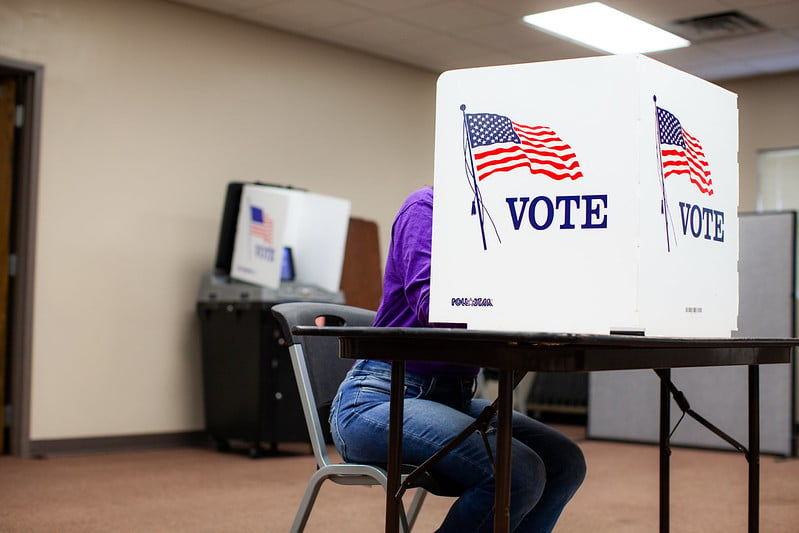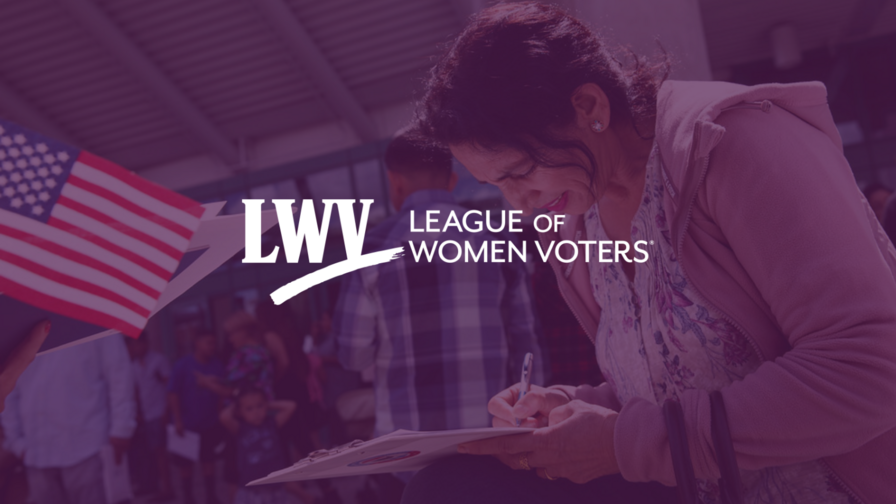Everything You Need to Know About the Presidential Primaries
Primary elections and caucuses are a key part of the process of selecting the next president. They provide a crucial opportunity for voters to take control and influence the process by selecting their top candidate to represent a political party in the general election.
Unfortunately, fewer voters tend to turn out for primary elections and caucuses despite their impact on who ultimately wins the race for the White House. Therefore, any increase in turnout can have a significant impact; remind your friends and family to register to vote so that they can participate in the upcoming presidential primaries.
Learn About Your State's Elections
The rules about the primaries, including when they are held and who can participate in them, vary by state. But, here’s a quick look to help answer your questions about this pivotal part of our voting system.
How Do Primaries and Caucuses Work? Who Can Participate?
Rules on which voters can participate in primaries and caucuses vary by state. Generally speaking, individuals designate the political party whose primary or caucus they will vote in when they register to vote or update their voter registration. Some states let you make this choice on Election Day. States generally hold one of three main types of primaries or a nominating caucus.
Open Primaries
All voters may cast a ballot in a primary, regardless of their political affiliation. This means that as long as you are registered to vote, you may choose which party’s primary you want to participate in.
Closed Primaries
Only voters who are registered members of a political party prior to the primary may participate in choosing that party’s candidates.
Semi-closed or Hybrid Primaries
Voters who have not previously chosen a political party can choose which party’s primary to vote in. Voters registered with a party may only vote in that party's primary. This system represents a middle ground since independent or unaffiliated voters can still participate, but voters cannot vote outside of their designated party.
Nominating Caucus
A small group of party leaders or a broader group of voters choose the party’s nominee. In some states, voters from any party can participate in any party’s caucus. Unlike a primary election, nominating caucuses are run by the party itself, not the state or local government.

What are Delegates?
In the presidential primaries, voters select delegates who have committed to representing a particular candidate at the party’s national convention later this summer. Voters may see the delegate's name alongside their chosen candidate when in the voting booth.
The delegates' job is to confirm voters’ choice on the floor of the party’s national convention. Most states’ primaries and caucuses are binding, meaning that the results legally bind some or all of the delegates to vote for a particular candidate unless they release their delegates, for example, if they drop out of the race. How states disseminate their delegates varies, with some being proportional to the election results while others are winner-takes-all.
When Is My State’s Primary or Caucus?
Primary elections can be held at any time throughout the year, but most presidential primaries are held between February and June. The most influential primary day is often "Super Tuesday," when most states simultaneously hold their primaries and caucuses.
Enter your address at VOTE411 to find everything you need to know about your state’s upcoming elections, including primary or caucus date and deadlines for voter registration, early and absentee voting opportunities, voting rules, and more.
How Do I Learn About The Candidates?
In the lead-up to primaries and caucuses, candidates work to convince potential voters to vote for them. They usually do this through speeches, public events, radio and television commercials, ads, and mailings, as well as through candidate debates and forums.
Candidate debates and forums are core features of US politics that help voters learn more about a candidate and his or her stance on key issues. . Additional debates and forums will occur throughout the primary and caucus season.
In addition to debates and forums, voters can learn about candidates through VOTE411's candidate guides, which provide information directly from the candidates regarding where they stand on a variety of public policy issues.
What Else Do I Need To Know?
As more states vote, the number of candidates actively campaigning usually shrinks (though candidates’ names may remain on ballots after they have withdrawn from the race). Additionally, not all candidates will be on the ballot in every state. VOTE411 can help voters learn which candidates to expect on their ballot.
Whether at the local, state, or national level, voting is the most powerful way to have your voice heard. That’s why it’s crucial that you make sure you’re registered and ready to vote! If you recently changed your name or moved or want to change your party affiliation, please update your voter registration record. Remember to remind your friends and family members to check or update their registration, too!
This blog was updated on 1/30/24
Sign Up For Email
Keep up with the League. Receive emails to your inbox!
Donate to support our work
to empower voters and defend democracy.





